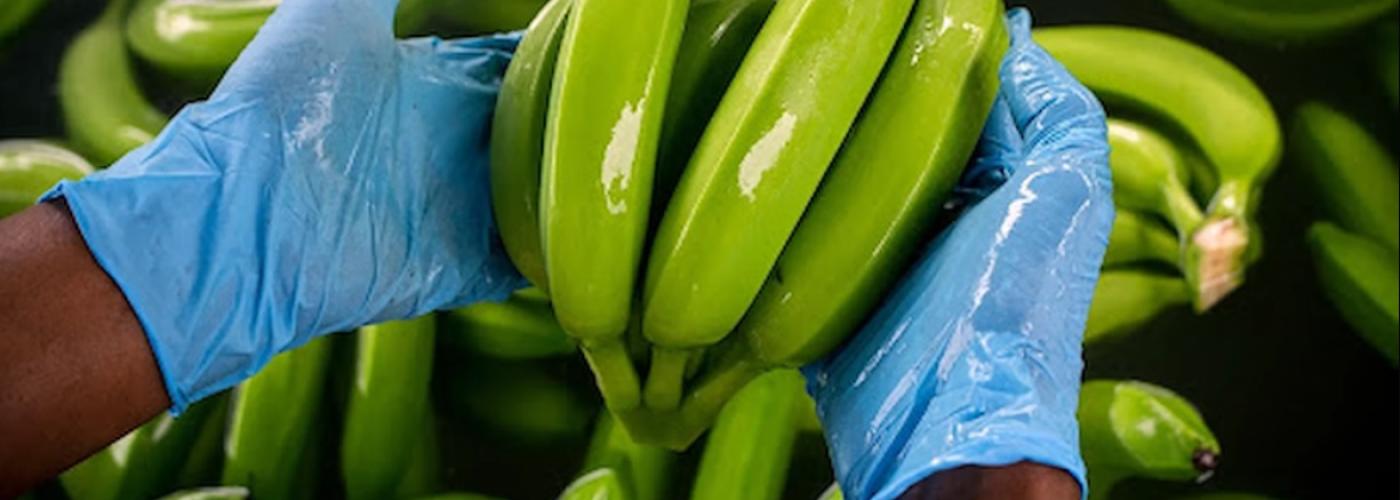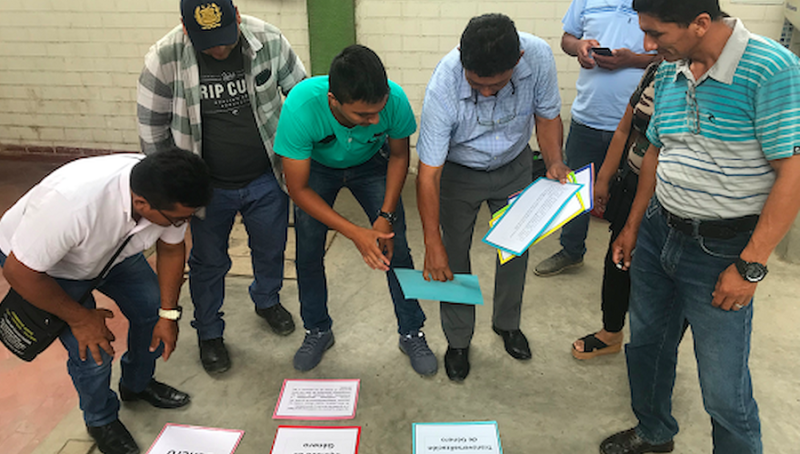Peru: Investing in Cooperatives to Combat Supply Chain Shortages
Image

This post was written by USAID Private Sector Engagement and was originally published on Exposure.
he COVID-19 pandemic has taken a devastating toll on banana farmers in Central and South America who ship a considerable amount of their crop to the United States and other regions. Coronavirus outbreaks and related travel restrictions have exacerbated social and environmental issues and caused incomes to rapidly decline, pushing farmers to a breaking point.
In Peru, a banana co-op called Río y Valle lost several members to COVID- 19 and experienced limited production capacity and quality control issues during post-harvest processing. As a result, seven of the co-op’s U.S.-bound containers of bananas were declined by stores. The economic implications were devastating: $100,000 worth of produce could not be sold, and 362 farmers already reeling from the pandemic who would now lose the income they needed to provide for their families.
Fortunately, Río y Valle’s buyer was Equal Exchange, a U.S.-based company that buys and sells fair-trade, organic produce and pantry items. The worker-owned cooperative, which cultivates long-standing relationships with its global sourcing partners, absorbed the majority of the cost of the unsold bananas. They also agreed to purchase half the amount of bananas from Río y Valle moving forward as the co-op resolved its quality issues.
Equal Exchange then tapped another long-standing partner for assistance: USAID. The two organizations have collaborated since 2010 through the Agency’s Cooperative Development Program (CDP) to help farmers improve productivity and gain equity through capacity improvements. The partnership helps USAID achieve its goal of supporting locally-led economic and environmental solutions, as well as Equal Exchange’s goal of strengthening its supply chain and helping its sourcing partners succeed in competitive international markets.
Image

Photo Credit: Equal Exchange
Through the partnership, Equal Exchange and Río y Valle performed an economic analysis of the co-op’s production issues and ran diagnostics to target and resolve them. Two agronomists were brought on to resolve supply chain problems in the field–including low productivity, poor quality, and inefficient soil and water management practices–leading to the application of organic fertilizers and improved soil fertility.
Today, many of these quality issues have been resolved and Equal Exchange is purchasing the full quantity of bananas from the co-op once more. This past year, Río y Valle produced more than 3,400 tons of bananas. In addition, despite a significant drop in the global price of bananas, prices paid to farmers have increased, resulting in a two percent rise in income each year and over $2.1 million USD in annual sales in 2020.
The program also provided support for Río y Valle to transition from an association (formerly known as CEPIBO) to the cooperative that it is today, aggregating over $50,000 USD in member equity in just three years.
“From the commercial side, we have seen the benefits the CDP grant has provided to Río y Valle in terms of organizational stability and quality improvements,” said Ravdeep Jaidka, Equal Exchange’s Vice President and Sourcing Manager of Produce.
“We’re happy to have been able to support Río y Valle during this transitional period to provide CDP resources that could contribute to their stability and cooperative resilience, and result in improvements in the commercial relationships, which ultimately benefit farmer members,” said Julia Baumgartner, Equal Exchange’s Cooperative Development Program Manager.
Río y Valle is one of nine cooperatives in four countries across Latin America that receives assistance through the partnership. To date, the program has increased farmers’ member equity by more than $5 million, improved supply chain stability, and helped to mitigate the impacts of climate change. Collectively, these cooperatives provide over $42 million in income to farmers.
The partnership also creates an avenue for Equal Exchange to standardize and institutionalize their support for farmers and explore opportunities to innovate alongside local cooperatives. This has translated to a greater emphasis on environmental conservation, gender integration, and youth entrepreneurship. Now, the cooperatives develop and manage their own strategies and systems for these efforts.
“Producers are often the most vulnerable actors along an agricultural supply chain. Therefore, we try to identify buyers who have maintained long-term commitment to their suppliers—those who invest in the capacity of producers and operate on a foundation of mutual benefit and trust,” said Emily Varga, USAID Cooperative Business Specialist for the Local, Faith, and Transformative Partnerships Hub.
As global supply chain challenges become more prevalent, companies that invest in the success of their suppliers are better suited to negotiate uncertainty while also meeting sustainability and social equity goals. Private sector partnerships with USAID encourage these forward-thinking companies and their suppliers to test and pilot innovative, locally-led approaches. The result is improved supply chain resilience that also protects community interests and livelihoods in the regions most impacted by climate change.
ABOUT THE COOPERATIVE DEVELOPMENT PROGRAM
USAID’s Cooperative Development Program (CDP) strengthens cooperative businesses, credit unions, and cooperative ecosystems worldwide. Its impact is generated through partnerships with U.S.-based cooperative development companies and organizations including Equal Exchange, Land O’Lakes Venture37, Frontier Co-op, and several others.

